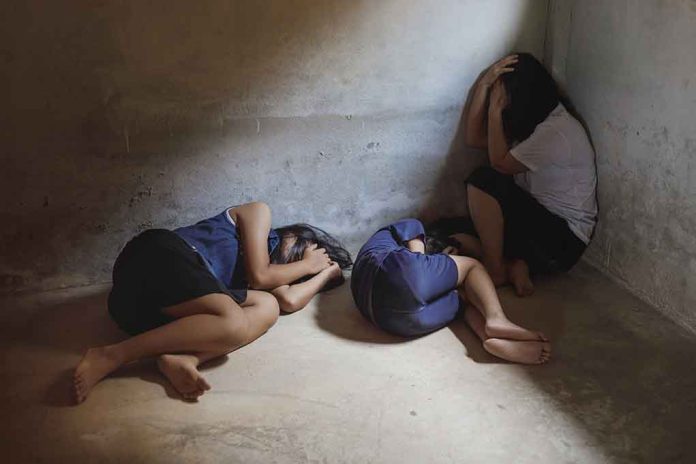
Mark Wells, a 53-year-old Mississippi man, faces an October trial for trafficking two teenage girls in Pensacola, Florida, spotlighting the ongoing battle against human trafficking in the region.
At a glance:
- Wells is charged with forced labor by human trafficking and contributing to the delinquency of a minor
- The trial is set for the final week of October, with jury selection on October 28
- If convicted, Wells could face up to 60 years in state prison
- The case highlights the broader issue of human trafficking along the I-10 corridor
The Case Against Mark Wells
Mark Wells, a former landlord from Biloxi, Mississippi, stands accused of trafficking two teenage girls, aged 15 and 16, across state lines to Pensacola, Florida. The charges stem from an incident where Wells allegedly took the minors from their home without parental permission, promising them work at his company. The gravity of these accusations has drawn significant attention to the upcoming trial, scheduled for late October.
According to court documents, Wells allegedly “gave them $100” and promised an additional $50 for work at his company. The mother of the teens stated she did not give Wells permission to take her daughters out of state, emphasizing the seriousness of the alleged crime.
The Broader Context of Human Trafficking
The Wells case is not an isolated incident but part of a larger pattern of human trafficking affecting the region. Mississippi Attorney General Lynn Fitch has highlighted the prevalence of this issue, stating, “Human trafficking is here. It’s in the state of Mississippi. We have to go after these traffickers, we have to rescue victims, we have to help them get back into society without any shame or blame. They didn’t ask to be in this situation, and these traffickers just strip the dignity off these individuals.”
The I-10 Corridor: A Highway for Traffickers
Law enforcement officials have identified Interstate 10, which runs from California to Florida, as a major route for human traffickers. Jackson County Sheriff John Ledbetter emphasized this point, saying, “I-10 is a main artery through Mississippi, and that is how human trafficking victims get transported. They do come through our county. Our deputies get constant training to target those vehicles.”
This case underscores the critical need for vigilance along major transportation routes and the importance of law enforcement training to identify and intervene in potential trafficking situations.
Community Response and Support Systems
The Wells case has galvanized community response and highlighted the role of support organizations. United Way agencies, such as the Gulf Coast Center for Non Violence, provide crucial support and expertise in helping trafficking victims. These organizations work tirelessly to offer resources and aid to those affected by this heinous crime.
“Sadly enough, many of the victims are trafficked by their family member or someone they loved and trusted,” Attorney General Fitch added. “That’s an emotional roller coaster when we find those victims as well.”
This statement underscores the complex emotional challenges faced by victims and the importance of comprehensive support systems in their recovery process.
The Trial’s Significance
The upcoming trial of Mark Wells is more than just a legal proceeding; it’s a litmus test for the judicial system’s ability to address human trafficking effectively. As the community watches closely, the outcome of this trial could set precedents for future prosecutions and influence public policy regarding the protection of minors from exploitation.
Human Rights Advocate, Jane Doe, emphasizes the importance of this case, stating, “Open Your Eyes” to the reality of human trafficking in our communities. It’s happening right under our noses, and cases like this serve as a wake-up call for everyone to be more vigilant and proactive in protecting our youth.
As the October trial approaches, the case against Mark Wells serves as a stark reminder of the ongoing fight against human trafficking. It highlights the need for continued vigilance, robust law enforcement efforts, and strong community support systems to combat this pervasive issue. The outcome of this trial may well shape the future of anti-trafficking efforts in Mississippi and beyond.





